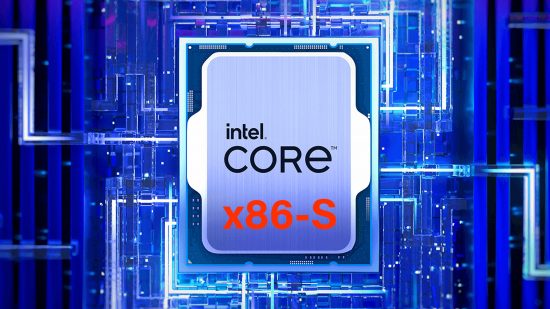Intel has published a whitepaper that proposes a new Intel x86-S architecture that would be 64-bit only, ending support for legacy 32-bit hardware and software. Intel believes this would simplify both hardware and software, though doesn’t specify if this would result in performance or efficiency gains for end users.
The move would follow native support for 16-bit applications having already been dropped some years ago. Most end users would be unaffected as most hardware and software have long since switched to supporting 64-bit. However, some legacy software would be left unsupported natively, although it should still work using emulation.
Intel lists the benefits of a 64-bit-only architecture as follows:
A 64-bit mode-only architecture removes some older appendages of the architecture, reducing the overall complexity of the software and hardware architecture. By exploring a 64-bit mode-only architecture, other changes that are aligned with modern software deployment could be made. These changes include:
- Using the simplified segmentation model of 64-bit for segmentation support for 32-bit applications, matching what modern operating systems already use.
- Removing ring 1 and 2 (which are unused by modern software) and obsolete segmentation features like gates.
- Removing 16-bit addressing support.
- Eliminating support for ring 3 I/O port accesses.
- Eliminating string port I/O, which supported an obsolete CPU-driven I/O model.
- Limiting local interrupt controller (APIC) use to X2APIC and remove legacy 8259 support.
- Removing some unused operating system mode bits.
You can read Intel’s summary of the proposal here and the full whitepaper here.
Given how Intel hasn’t made any statement about any performance gains that might occur from such a change, it’s unclear whether this move is something most users should look forward to or whether it will just be a seamless change that most of us hardly notice. Certainly, for most users, the likes of the Intel Core i9-13900K show little signs of being hamstrung by this legacy support.
It may also never actually happen, as continued legacy support of the PC ecosystem is such a key tenet of its appeal that Intel wouldn’t want to risk disturbing the status quo, despite it being over 20 years since 64-bit processors first appeared on the market. If it does happen, though, it will probably be several years off, as we’ve already seen several Intel product roadmaps that give no hint of such changes in the next couple of CPU generations.
Would you be concerned about the lights going out on 32-bit support? Let us know your thoughts on the Custom PC Facebook page, via Twitter, or join our Custom PC and Gaming Setup Facebook group and tap into the knowledge of our 375,000+ members. Meanwhile, for our current CPU recommendations, check out our best CPU for gaming list.
